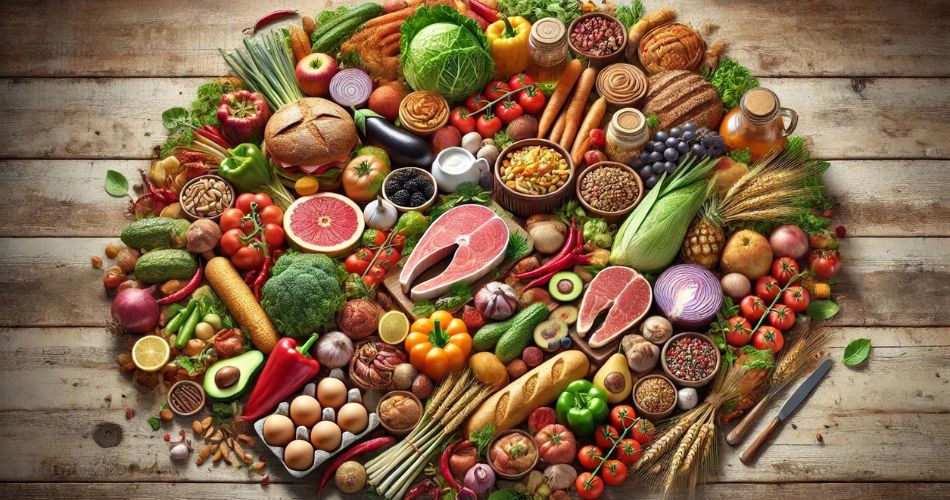Briefly
Food, as an essential part of human life, carries a rich tapestry of symbolism and meaning in various contexts. It represents sustenance, survival, pleasure, abundance and sometimes even status. It can be symbolic of our basic human needs and desires, reflecting our physical, emotional, and spiritual states. It’s also associated with celebration, community, and sharing, and can embody themes of nourishment, creativity, and transformation.
- Symbolism: sustenance, survival, pleasure, abundance, status, basic human needs and desires, physical and emotional states, celebration, community, nourishment, creativity, transformation.
Food in Dreams
From a psychological point of view, dreaming about food can be interpreted as a representation of our needs and desires. It could reflect emotional nourishment, comfort, or satisfaction in one’s life. Dreaming about certain types of food could be an indication of specific feelings or situations. For instance, dreaming about sweets might suggest a desire for rewards or pleasures. On the other hand, dreaming about rotten food could signify a feeling of decay or neglected issues in one’s life.
- Symbolism: needs and desires, emotional nourishment, comfort, satisfaction, specific feelings or situations.
- See also our Free Dream Interpretation Tool
Food in Myths and Folklore
Food often plays a significant role in myths and folklore. For instance, in Greek mythology, ambrosia and nectar were foods of the gods that bestowed immortality. In Celtic mythology, the magical salmon of knowledge was thought to grant wisdom to the person who consumed it. In Norse mythology, the golden apples of Idunn granted eternal youth to the gods.
In many fairy tales, food can symbolize temptation or danger, like the poisoned apple in Snow White or the candy house in Hansel and Gretel. Thus, food in myths and folklore can symbolize power, temptation, danger, wisdom, or the quest for eternal life or youth.
- Symbolism: immortality, wisdom, temptation, danger, power, quest for eternal life or youth.
Food Spiritual Meanings
In the spiritual context, food often symbolizes nourishment of the soul or spirit. It can also represent abundance, prosperity, and gratitude. In Christianity, bread and wine are used in the Eucharist and are symbolic of the body and blood of Christ. In Hinduism, food is often offered to gods during rituals as a sign of devotion and thanksgiving. In Buddhism, mindful eating is a practice to develop mindfulness and cultivate gratitude.
- Symbolism: nourishment of the soul or spirit, abundance, prosperity, gratitude, devotion, mindfulness.
Food Tattoo Meaning
A tattoo of food often symbolizes the person’s passion for food or cooking. It could also symbolize abundance, pleasure, or a love for life. A food tattoo might depict a favorite food or dish, symbolizing personal preference or identity. For instance, a tattoo of a fruit like an apple could symbolize knowledge or temptation, while a pizza tattoo might represent fun, enjoyment, and a laid back personality.
- Symbolism: passion for food or cooking, abundance, pleasure, love for life, personal preference or identity, knowledge, temptation, fun, enjoyment.

Reviewed by Alexander Lys, M.L., a specialist in the field of symbolism research and dream psychology. A certified participant in numerous psychological seminars and courses, the author of hundreds of articles on psychology, including studies on symbolism in dreams and myths from a scientific perspective.



